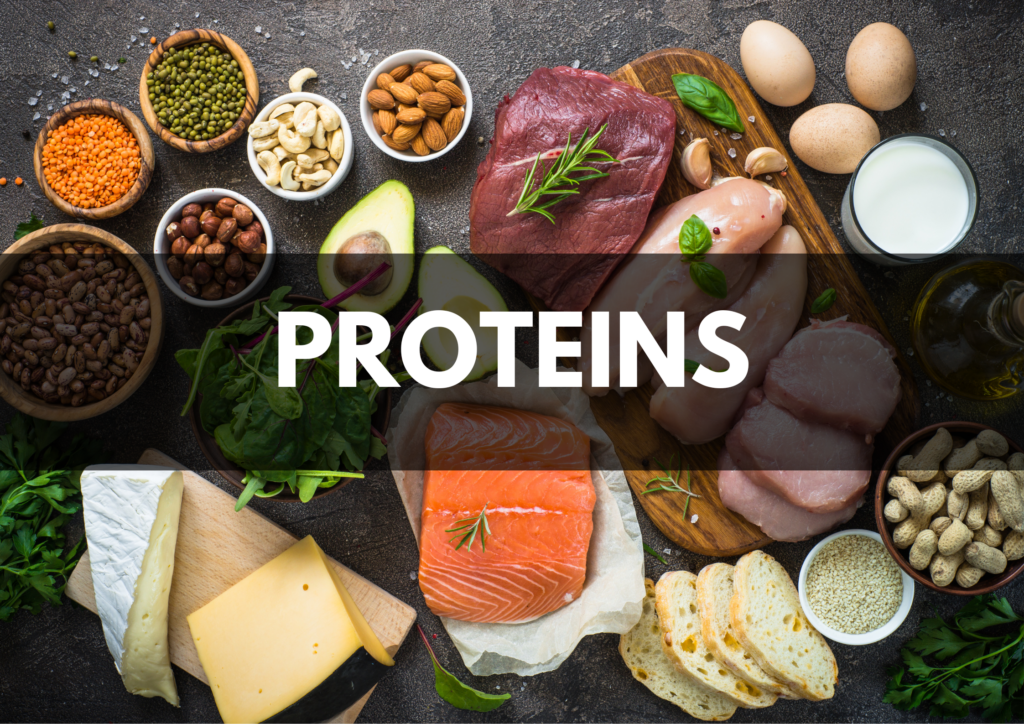I recently had a client who wanted to gain weight and muscle mass for high school sports, but he had nut and pea protein allergies. It can get tricky when pea is an allergen for you and you want to incorporate protein powder supplements, such as bars and shakes. When you find options that are allergy-friendly, they tend to have pea protein in them, so we had to start thinking outside of the box. My client was lucky in a sense because those were his only allergies, but what if you had an allergy to all top 9 allergens and pea protein? It can seem overwhelming for sure, but not to worry… In this guide, we’ll explore alternative protein options for those allergic to the top 9 allergens AND pea protein!”
Let’s start with the easiest and most common protein options that most of us think of.
Meat and Poultry:
For individuals who can consume animal products but are allergic to common allergens like milk, eggs, fish, and shellfish, meat and poultry are excellent sources of protein:
- Chicken: Versatile and widely available, chicken is a lean source of protein that can be grilled, baked, or sautéed.
- Turkey: Another lean protein option, turkey can be enjoyed in various forms, from ground turkey in burgers to roasted turkey breast.
- Beef: Lean cuts of beef, such as sirloin or tenderloin, provide a hearty dose of protein and can be incorporated into dishes like stir-fries, stews, or tacos.
- Pork: Pork tenderloin and loin chops are lean cuts that offer protein and can be prepared in numerous ways, including grilling, roasting, or braising.
Plant-Based Allergy-Friendly Protein Options:
Now let’s move on to the allergy-friendly plant-based proteins options. I think it will be surprising for some to see how many plant-based allergy-friendly protein options are available.
Legumes and Seeds:
- Legumes: Beans and lentils are rich in protein and versatile in cooking. Peas are a legume, so if you have a pea protein allergy, make sure you can safely consume other legumes. Just because you are allergic to one, does not mean you are allergic to the other.
- Quinoa: This pseudo-grain is a complete protein, making it an excellent choice for those avoiding animal products. At our home, we make quinoa in some form weekly. Such a great option for plant-based protein.
- Chia Seeds: These tiny seeds are packed with protein and can be added to smoothies, oatmeal, or used as an egg substitute in baking. Chia seed pudding is a common option I recommend to my clients whether they are looking to increase protein or just trying to be a little healthier at breakfast.
- Hemp Seeds: Another seed option, hemp seeds are a complete protein source and can be sprinkled on salads, yogurt, oatmeal or blended into smoothies. They have a delicious nutty flavor.
- Pumpkin Seeds: I was fascinated when I found out that pumpkin seeds have more protein than nuts! Pumpkin seeds have 10g of protein per ¼ cup. Grab some and start snacking.
Allergy-Friendly Grains:
Individuals allergic to wheat can explore alternative grains that offer protein and nutrients. Some options include:
- Buckwheat: Despite its name, buckwheat is not related to wheat and is a good source of protein.
- Amaranth: This gluten-free grain is rich in protein and can be cooked similarly to rice or used in baking.
- Millet: Millet is a nutritious grain that can be cooked as a side dish or used in gluten-free baking recipes. The first time I tried millet, I was in NYC in my 20s and I couldn’t believe how delicious it was. It isn’t the easiest grain to find, but specialty stores will have it.
Allergy-Friendly Seed Butters:
- Sunflower Seed Butter: Made from roasted sunflower seeds, this butter is a tasty alternative to peanut butter.
- Pumpkin Seed Butter: Rich in protein and minerals, pumpkin seed butter can be spread on toast or used in recipes.
- Soy-Free Tofu: Tofu made from chickpeas, fava beans or other legumes can be a great alternative for those allergic to soy.
Additional Options:
- Jackfruit: When cooked, jackfruit has a texture similar to pulled pork and can be seasoned to mimic meat dishes.
- Coconut Milk Cheese: Coconut milk cheese is a creamy and flavorful alternative to dairy cheese, perfect for topping burgers or adding to nachos.
Living with allergies to the top 9 allergens and peas doesn’t mean sacrificing protein or nutrition. By exploring alternative protein sources such as meat, poultry, wheat-free grains, legumes, seeds, and seed butters, individuals can enjoy a diverse and protein-rich diet while managing their allergies. As always, it’s essential to read labels carefully. With the right knowledge and resources, navigating protein options can be both manageable and delicious. If you need help navigating the food allergy world, take a look at my course “Take Back Control from Food Allergies,” which is now open for enrollment.
Enrollment closes on May 23rd!
BONUS: Homemade protein powder recipe (Top 9 allergen free AND pea protein free!)
- 1 cup hemp seeds
- 1/2 cup chia seeds
- 1/2 cup flax seeds
- 1/4 cup pumpkin seeds
Combine in a blender. Store in an airtight container and keep it in the refrigerator so it will last longer.

